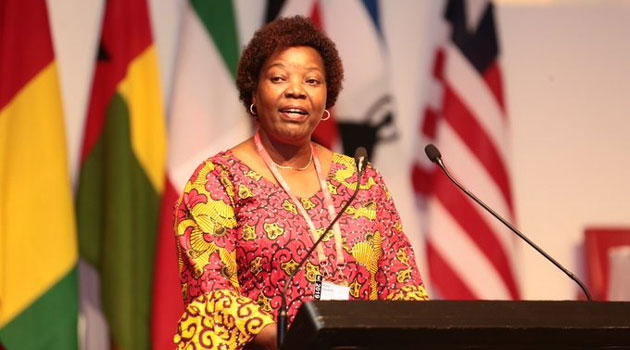
 FKE executive director and CEO Jacqueline Mugo/ FILE
FKE executive director and CEO Jacqueline Mugo/ FILE
Employers now want the government to consider reducing the housing levy deduction rate to 0.5 per cent, zero-rate VAT on basic food items and peg statutory deductions to basic pay.
Through the Federation of Kenya Employers (FKE), they have also called on the government to revise the tax relief bands from Sh24,000 to Sh36,000, even as the federation asks its members to fully comply with the six per cent wage increase gazzetted last year and backdate payments to November 2024.
These moves, FKE says, will help improve workers’ welfare and support business sustainability in the country.
The Housing Levy is a mandatory contribution that both employers and employees make where the law requires every employee to contribute 1.5 per cent of their monthly gross salary, with employees matching a similar rate making it three per cent, which goes into supporting the government’s affordable housing projects.
The draft Finance Bill, 2025 on the other hand has proposed VAT classifications for essential goods and services, a move that experts warn will see manufacturers pass the cost to consumers, pushing up the overall cost of living.
While President William Ruto’s government has indicated it would not be seeking to increase taxes, higher prices loom in the changes that National Treasury wants MPs to make, which includes reclassification of key products from VAT zero-rated to VAT-exempt status.
This means producers will not be able to claim Value Added Tax incurred on related expenses.
Zero-rated goods are not taxed during sale but producers can claim a credit for the value-added tax paid on inputs, effectively reducing their production costs.
The shift to exempt status means businesses can no longer recover these input taxes and eventually pass the additional costs to consumers through higher prices.
Among the affected items are pharmaceutical manufacturing inputs, sugarcane transportation, locally manufactured mobile phones, electric bicycles, solar and lithium-ion batteries and animal feed ingredients.
This is likely to see the cost of common commodities such as sugar, milk, medicine, eggs, mobile phones, electric bicycles, solar equipment, and lithium batteries go up as manufacturers pass the bill to consumers.
FKE’s call to peg statutory deduction on basic pay also means employees will take home more.
Currently, these deductions including PAYE (Pay As You Earn), NSSF (National Social Security Fund), and NHIF (National Hospital Insurance Fund) contributions are deducted by employers from an employee's gross salary and remitted to respective authorities.
The key difference between gross pay and basic pay is that gross pay is the total amount an employee earns before any deductions, while basic pay is the fixed, agreed-up salary excluding bonuses, overtime or other extra compensation.
“These steps if adopted would ease the cost of living, increase the disposable income of lowest paid employees and make Kenyan businesses more competitive,” FKE executive director and CEO, Jacqueline Mugo, said, even as the federation faults the Central Organization of Trade Unions (COTU)-Kenya for leaving out employer’s during this year’s Labout Day celebrations, on May 1.
For them to realise their full potential, employers and the business community have asked for a “stable, predictable, simple and business-friendly taxation policy framework”, that supports business growth, encourages capital formation and promotes investments, to help them create sufficient employment and pay higher wages.
Policy should be clear whether Kenya is positioning herself as a producing or trading country, FKE added.
“We desire a producing country, exporting goods across Africa and the world. We must fill our shelves, trucks and homes with Made in Kenya products and brands,” said Mugo.
The federation supports the President’s directive on the ratification of ILO Conventions 189 and 190.
However, it wants this done through the proper legal and procedural framework, as outlined in the Treaty Making and Ratification Act, ILO Convention 144, ILO Recommendation 152, and related international instruments that guide ratification of the ILO Conventions.
“Our concern is simply that Kenya needs to follow all the required steps before ratification, and although progress has been made no comprehensive report confirms full compliance,” she said.












